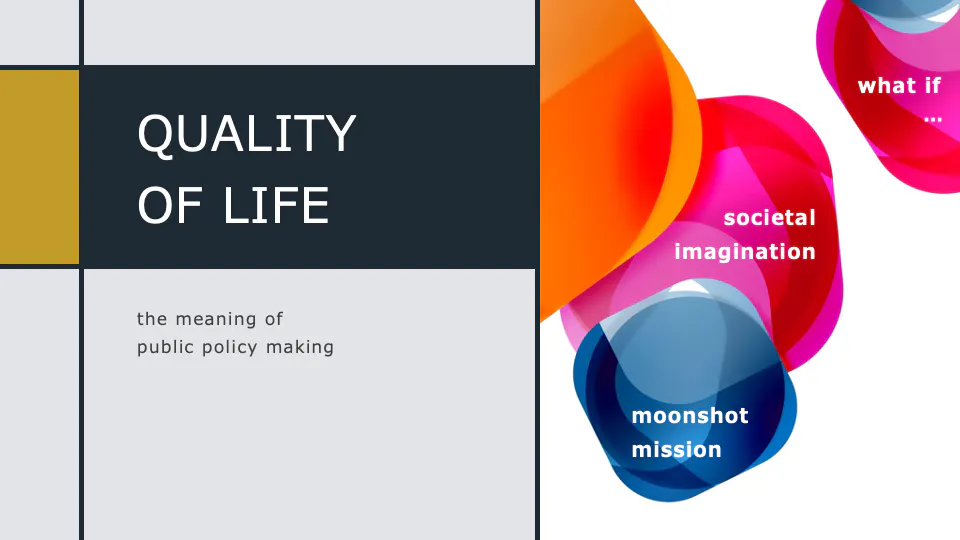People’s well-being as mission for Europe
October 2021

In recent years, there is a lot of talking about taking (European or any other) policies closer to the citizens. This would actually also mean to better target them to what citizens expect from policy making.
Cutting a long story short, one might argue that in essence people strive for ensuring or improving their well-being and quality of life, however they may define it. This in turn means that people’s quality of life also concerns public policy and decision making. In a democracy, where public policy making serves its citizens, the sum of all public policies and decisions should ultimately aim at ensuring the well-being and quality of life of the citizens. This line of reasoning is actually very close to the article 3(1) of the Treaty on the European Union outlines which states that Union's aim is to promote peace, its values and the well-being of its people. In a sense, citizens show in public elections which parties or persons they consider best capable to do so – in accordance with the aspects of quality of life they value most. However, there might be more to it.
Understanding subjective diversities
Focusing policy making on people’s well-being or quality of life – more directly than just indirectly via general elections – comes with at least two fundament challenges.
To read this post you'll need to become a member. Members help us fund our work to ensure we can stick around long-term.
See our plans (Opens in a new window)
Already a member? Log in (Opens in a new window)


